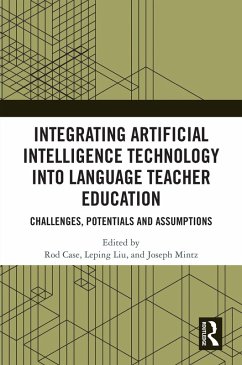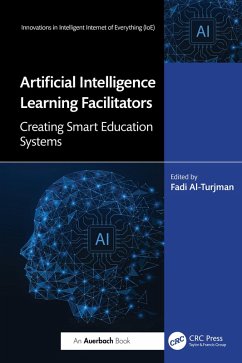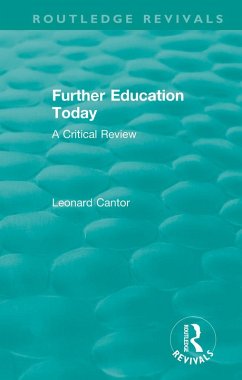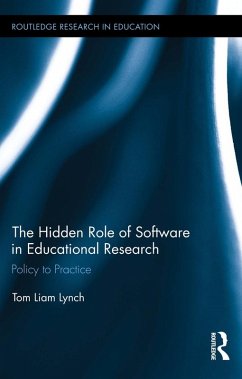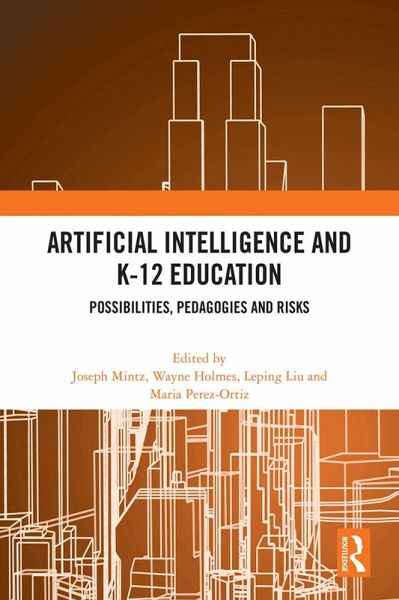
Artificial Intelligence and K-12 Education (eBook, ePUB)
Possibilities, Pedagogies and Risks
Redaktion: Mintz, Joseph; Perez-Ortiz, Maria; Liu, Leping; Holmes, Wayne
Versandkostenfrei!
Sofort per Download lieferbar
39,95 €
inkl. MwSt.
Weitere Ausgaben:

PAYBACK Punkte
20 °P sammeln!
This book problematizes and explores appropriate ways of using AI technology that can augment educational practice, especially in K-12 teaching and learning.Since the launch of OpenAI ChatGPT in November 2022, people have been debating "to chat or to cheat" while more and more educators have started to explore "to add or to integrate" it into teaching and learning. A list of questions has been on the way. What can ChatGPT produce? How accurate can the contents produced by the GPT be? What are the considerations that an instructor should have when using AI technology for student learning? To wh...
This book problematizes and explores appropriate ways of using AI technology that can augment educational practice, especially in K-12 teaching and learning.
Since the launch of OpenAI ChatGPT in November 2022, people have been debating "to chat or to cheat" while more and more educators have started to explore "to add or to integrate" it into teaching and learning. A list of questions has been on the way. What can ChatGPT produce? How accurate can the contents produced by the GPT be? What are the considerations that an instructor should have when using AI technology for student learning? To what extent can ChatGPT compete with humans in terms of learning? ChatGPT is just a technology tool, but it drops a huge bomb in the field of education, and even changes the way many think about education. The contributors of this book, as well as probing the ethical conundrums presented by generative AI and other new technologies in AI&ED, summarize an overview of practice, provided first-hand experiences, and suggested strategies and methods that are workable in the field.
This cutting-edge volume will be of interest to researchers, scholars and practitioners of education, education technology, sociology, ethics and artificial intelligence. It was originally published as a special issue of Computers in the Schools.
Since the launch of OpenAI ChatGPT in November 2022, people have been debating "to chat or to cheat" while more and more educators have started to explore "to add or to integrate" it into teaching and learning. A list of questions has been on the way. What can ChatGPT produce? How accurate can the contents produced by the GPT be? What are the considerations that an instructor should have when using AI technology for student learning? To what extent can ChatGPT compete with humans in terms of learning? ChatGPT is just a technology tool, but it drops a huge bomb in the field of education, and even changes the way many think about education. The contributors of this book, as well as probing the ethical conundrums presented by generative AI and other new technologies in AI&ED, summarize an overview of practice, provided first-hand experiences, and suggested strategies and methods that are workable in the field.
This cutting-edge volume will be of interest to researchers, scholars and practitioners of education, education technology, sociology, ethics and artificial intelligence. It was originally published as a special issue of Computers in the Schools.
Dieser Download kann aus rechtlichen Gründen nur mit Rechnungsadresse in A, B, BG, CY, CZ, D, DK, EW, E, FIN, F, GR, HR, H, IRL, I, LT, L, LR, M, NL, PL, P, R, S, SLO, SK ausgeliefert werden.





